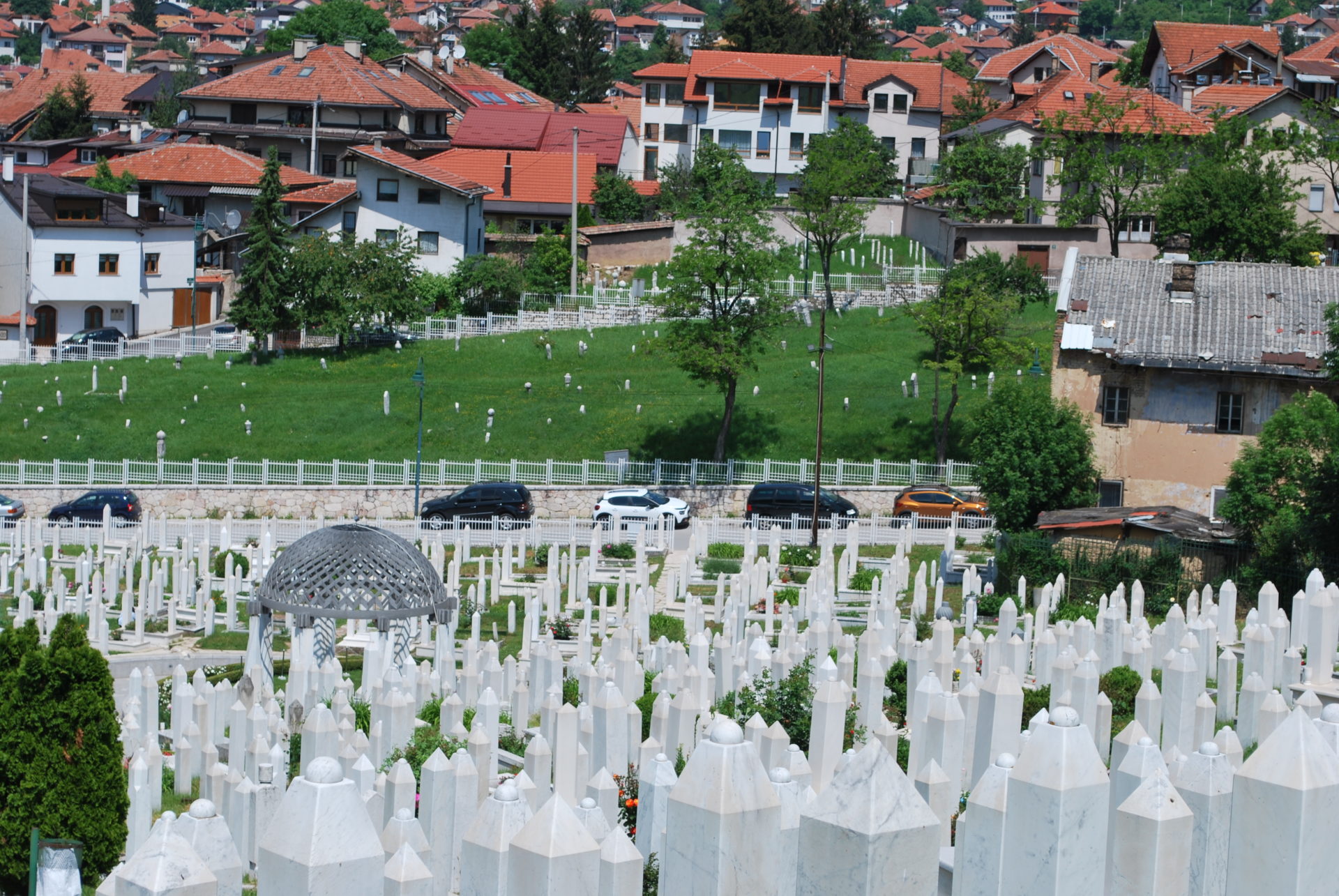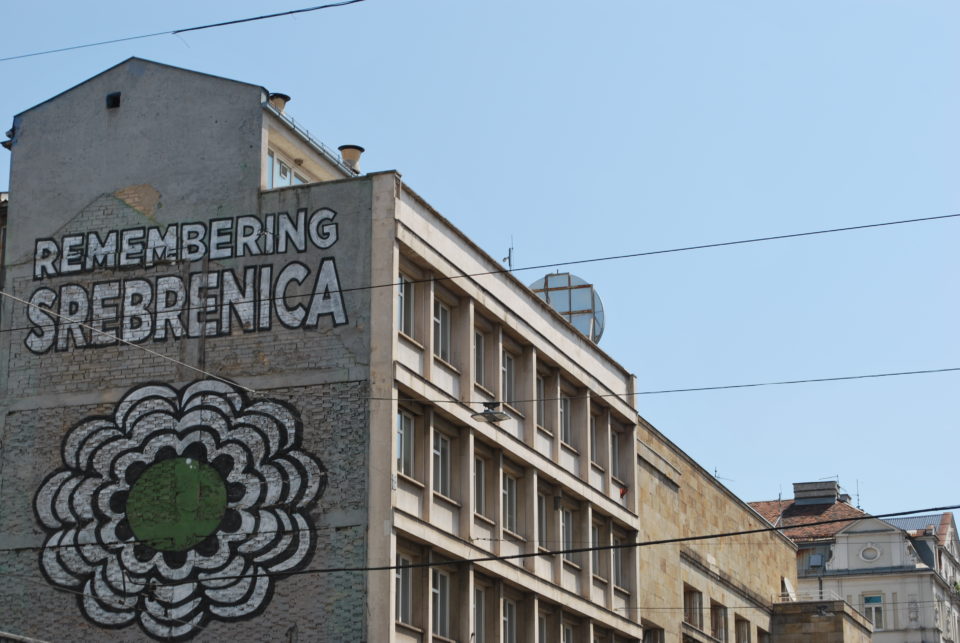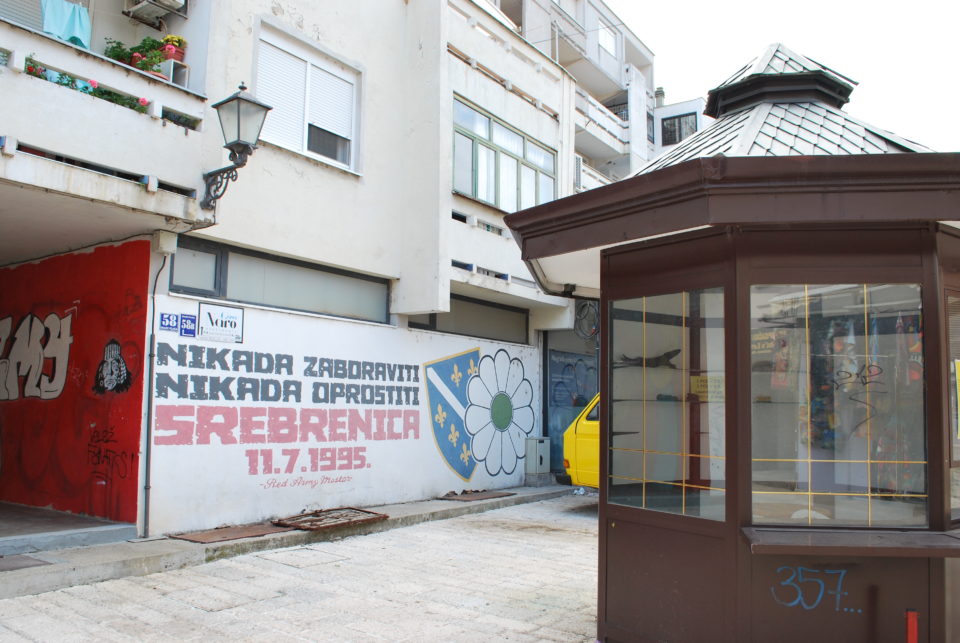
“The families of the missing are both survivors and victims of the war, as they have survived the war yet they have lost a family member: the disappeared.” (Abdel Latif, The Families of the Missing in Lebanon, 2021)
The fate of the missing leaves unhealed wounds for decades after the end of a conflict. Their continued absence can be a reminder of failed institutional responses and the lasting effect of conflict beyond the laying down of guns. An analysis of missing persons and the pursuit of justice following war in Bosnia and Herzegovina and Lebanon reveals interesting commonalities and differences that are worthy of further study.
Communities attempting to process the past are left to deal with the ambiguity surrounding the fate of their missing loved ones. In Lebanon, more than 17,400 people disappeared (Djokanovic, Bojana, The Long Wait: Lebanon’s Missing Persons) in the civil war that plagued the country between 1975 and 1990, with many more losing their lives.
According to the International Committee of the Red Cross (ICRC), which has been present on the ground since the mid-1960s, this translates to a third of the population being affected by the loss of members of their immediate family (Abdel Latif, The Families of the Missing in Lebanon, 2021). The years that have followed have been turbulent for family associations, which have led the fight for demanding action and justice. Moments of positive momentum have not led to cathartic change.
The post-war Lebanese reality and the measures taken by the highest authorities have reinforced and strongly encouraged forgetfulness (Young, Michael, The Sneer of Memory: Lebanon’s Disappeared and Postwar Culture, 2000), or what is also referred to as state-sponsored amnesia (ibid). Iosif Kovras describes this reality as institutionalized silence. (Özgür Sevgi Göral, Violent confrontations of the local, sectarian and international actors: “Institutionalized silence” of Lebanon and beyond).
Among these measures is the general amnesty law of August 1991 (Law 84), which stipulates a blanket amnesty over all crimes committed during the civil war, with some exceptions, including crimes committed against political and religious figures. It is important to note that there are voices arguing that this blanket amnesty should not be applicable to the crime of forced disappearance. The basis of this argument lies in the fact that forced disappearance is a continuous crime, as is stated in the national Lebanese legislation, namely the General Amnesty Law of 1991 (On Justice Denied: Interrogating Amnesty and Amnesia in Post-Conflict Lebanon, Yale Journal of International Affairs, 2021)
In 1995, Law 434 was passed, shortening the necessary lapsed time period to have abducted persons legally declared dead (ibid) by their relatives to four years (Young, Michael, The Sneer of Memory, 2000). This legislative action was considered by many to be insulting to families, as they felt it killed any hope of finding their loved ones. Thus, perpetrators in power, including government officials, effectively washed their hands of culpability after 15 years of crimes, including forced disappearances. Amidst no effective legislation and political will, the responsibility of finding the missing and advocating on their behalf has been taken on by family associations.
Bosnia’s success and Lebanon’s frustrations
In Bosnia and Herzegovina, the 1992-1995 war resulted in approximately 31,500 missing persons. Over 90 percent of those reported missing were men (Hronešová, Jessie, Bones and Recognition: Compensating Families of Missing Persons in Post-War Bosnia and Herzegovina, 2018). As of today, around 75 percent have been accounted for. This high proportion of discovered missing persons is unprecedented when compared with other post-conflict societies. What is important to note is the institutional capacity that Bosnia and Herzegovina has been able to build in order to reach these figures, something Lebanon cannot claim to be true in its case.
The International Commission for Missing Persons (ICMP), among many other organizations, has supported Bosnia and Herzegovina in building a comprehensive framework for determining the fate of its missing persons. Bosnia and Herzegovina has signed the Declaration on the Role of the State in Addressing the Issue of Persons Missing as a Consequence of Armed Conflict and Human Rights Abuses, along with Croatia, Serbia, and Montenegro. Bosnia and Herzegovina is also a signatory to the International Convention for the Protection of All Persons from Enforced Disappearance (ICPPED). Lebanon has signed but not yet ratified the convention.
Among the reasons for the substantial work accomplished in Bosnia is, according to Political Sociologist, Jessie Hronešová, how the Srebrenica Genocide propelled the issue onto both domestic and international agendas in the years following the war (Hronešová, Bones and Recognition, 2018). Operationally, the fact that the ICMP was established and headquartered in Sarajevo before moving to The Hague also eased some of the challenges faced in accomplishing its mission (Hronešová, Jessie, Bosnia: The Search for Missing Persons, 2015). The ICRC has been attempting to lay the ground for a national process in Lebanon for years now, including through data collection and attempting to build the capacity of authorities to fulfill their responsibilities. Unfortunately, both endeavors have been, thus far, fruitless (Bell, Jennifer, Lebanon’s Missing: Painful Search for Answers Continues 48 Years after Civil War, 2023).

The International Center for Transitional Justice (ICTJ) has also supported Lebanon in its quest to uncover the truth about the missing. With no trials and prosecutions taking place, even the collection of information in Lebanon has become increasingly harder (Abdel Latif, The Families of the Missing in Lebanon, 2021).
A common struggle in civil societies
Civil society, both in Bosnia and Herzegovina and Lebanon, has been persistently voicing its demands for justice and efforts to find the missing. In Bosnia, Bosniak families created 12 municipal associations for the missing (Hronešová, Bones and Recognition, 2018). The Mothers of Srebrenica and their efforts culminated in the opening of the Srebrenica Memorial Center. Their journey to justice was not easy, especially at the beginning when they were not taken seriously by authorities due to their being women from rural areas, often uneducated (Khan, Amil, To Know Where He Lies | Remembering Srebrenica, 2017).
They tirelessly support the International Commission for Missing Persons, sharing DNA samples, and identifying bodies as well as personal belongings. As of today, over 75 percent (7,607 people) of missing persons in Bosnia have been found (Tesija, Vuk, et al, International Missing Persons Day Commemorated in Ex-Yugoslav Countries, 2023).
In Lebanon, efforts to account for the missing were initiated by several organizations. These included the Committee of the Families of the Kidnapped and Disappeared, which received support from the ICRC, the Follow-Up Committee for the Support of the Lebanese Detainees in Israeli Prisons, and the Support of Lebanese in Detention and Exile. One important NGO supporting the cause is ACT for the Disappeared and their interactive platform, Fushat Amal (Space of Hope), featuring stories of those missing. Women have an especially important role in leading these movements as many of their husbands were kidnapped (Abdel Latif, The Families of the Missing in Lebanon, 2021) showcasing the gendered impact of this issue prevalent in both post-conflict countries. Just as the Mothers of Srebrenica tirelessly fought to seek justice for their missing sons and husbands (who make up over 90 percent of those missing in Bosnia) so have the women of Lebanon fought to find their missing men.
Following the tireless work of Lebanese family associations, especially the Committee of the Families of the Kidnapped and Disappeared, two commissions of inquiry came into existence (2000-2001), followed by a third, joint Lebanese-Syrian commission in 2005 (Maalouf, Lynn, No Resolution for the Missing Persons in Lebanon, 2016).
However, these commissions did not lead to any substantive findings. Security service representatives among others were appointed by the government to investigate the cases of over 17,000 disappeared in Lebanon, casting doubt over the impartiality of their findings in the context of widespread impunity. The final report produced by one of the commissions concluded that most of those who have disappeared are most likely dead (ibid). Alarmed by the lack of action undertaken by the government, family associations continued tirelessly, demanding to know the truth of their missing loved ones, including those abducted by actors during the Israeli occupation (Mowles, Chris, The Israeli Occupation of South Lebanon, 1986) and Syrian intervention in Lebanon (Lawson, Fred H, Syria’s Intervention in the Lebanese Civil War, 1976: A Domestic Conflict Explanation, 1984). This further complicates the already sensitive issue, as some of those abducted are believed to have been transferred to prisons and other confinement centers in the two countries that exercised territorial control over parts of Lebanon until the early 2000s. Despite these challenges, families have continued fighting for legislative reform.
With the support of the ICTJ, Lebanese lawyer Nizar Saghieh drafted the Law for the Missing and Forcibly Disappeared in 2010 (Law 105). Lebanon’s highest administrative judicial authority, the State Consultative Council, recognized this right to know in 2014. Following this, families were granted access to previously confidential archives gathered by the first commission of inquiry created in the year 2000 (Seeking the Truth about the Missing in Lebanon: An Interview with Nizar Saghieh, 2014). Renewed hope echoed in response to the promulgation of Law 105 for the Missing and Forcibly Disappeared Persons in November 2018. This legislative step taken by the Administrative and Justice Parliamentary Committee was regarded as a beacon of hope for justice (El Bejjani Noureddine, Nour, Lebanon Edges Closer Toward Truth for Families of the Missing and Disappeared, 2018). This legislation established an independent commission, the National Commission for the Missing and Forcibly Disappeared Persons in Lebanon (Guide to the Law 105 on the Missing and Forcibly Disappeared Persons: Questions and Answers – Lebanon, 2022) which was tasked with investigating the fate of the missing. The Commission was mandated with exhuming mass graves and protecting DNA samples (ibid) both urgent matters considering how protracted any action has been to address this issue. The appointment of members of the Commission took place in 2020. Hopes were high that this would build on the breakthroughs achieved through civil pressure, including the legally recognized “right to know”.
Ever since, however, no measures have been taken to further advance this pursuit of justice. Considering the multifaceted crisis – political and economic – Lebanon is currently facing, hopes remain low as to seeing any renewal of efforts. Despite decades of pressure from civil society, the effective involvement of state authorities is necessary for concrete results (Maalouf, Lynn, No Resolution for the Missing Persons in Lebanon, 2016). The executive paralysis of the state is a major hindrance to the efforts of civil society in Lebanon.
In Bosnia and Herzegovina, despite many challenges, an unprecedented comprehensive law on missing persons was adopted at the state level. The Parliamentary Assembly of Bosnia and Herzegovina adopted the Law on Missing Persons in 2004. This was the first such legislative act adopted at the state level in a post-conflict society. Considering the structural complexity inherent to Bosnia and Herzegovina’s model of governance, the passing of this law can be deemed a huge success. One of the foreseen institutions is the Missing Persons Institute (MPI), which is tasked with tracing missing persons and issuing the necessary documents in this process. Along with the creation of the Fund for the Families of the Missing, this shows the strong institutionalized approach that has yielded the high percentage of discovered missing persons.

Article 3 of the Law on Missing Persons stipulates the right to know of the families of those missing. The law states the responsibilities of the entities to protect this right: the Federation of BiH, the Republika Srpska, as well as the Brčko District. It obliges them to provide the necessary assistance and information to the bodies involved in the search for the missing. These bodies include the ICRC, ICMP, the Missing Persons Institute, and the Red Cross Society (Article 6, Law on Missing Persons 2004, Bosnia and Herzegovina). Similar to Law 105 in Lebanon, the Law on Missing Persons in BiH also contains a legal definition of “missing person”. The law also sets out the protocol for submitting a tracing request, as well as specificities surrounding the termination of the status of a missing person. In order to preserve the collected data, the Central Records of Missing Persons in BiH was also created and is to be maintained by experts of the MPI.
Today’s ongoing struggle
Remains of the missing are still being exhumed in Bosnia and Herzegovina. In 2021, 80 victims were discovered despite the challenges faced with COVID-19 restrictions (Grebo, Lamija, Bosnia Finds More Wartime Missing Persons in 2021, 2021). A few months ago, the remains of a victim of the Srebrenica Genocide were discovered by the Missing Persons Institute in Brčko (Talha Öztürk, Mustafa, Bosnia unearths remains of 1995 Srebrenica genocide victim, 2023). During this year’s Srebrenica commemoration in July, 30 newly identified victims were buried (Kurtic, Azem. “30 Srebrenica Victims to Be Buried at Genocide Commemoration, 2023). Meanwhile, the families of those missing in Lebanon cannot lay their loved ones to rest or even know the truth of their whereabouts. As time progresses, hopes are fading in the Levantine nation.
As international attention on these post-conflict nations wanes, raising awareness of the fight for truth is as important as ever. On the 30th of August this year, the International Day of the Disappeared, Balkan Investigative Reporting Network BiH launched a video campaign that sheds light on the pain felt by the family members of those who are still missing (Stamatoukou, Eleni, BIRN BiH Launches Video Campaign about Missing Persons, 2023). In June 2023, the ICTJ and the Committee of the Families of the Kidnapped and Disappeared in Lebanon released the book entitled Windmills of Our Hearts, composed of short stories by 15 female relatives of the missing and forcibly disappeared (In a New Book, Women Relatives of the Missing in Lebanon Use the ‘Ink of Their Hearts’ to Tell Their Stories | International Center for Transitional Justice, 2023). The family associations and international organizations in both Lebanon and Bosnia and Herzegovina continue to shed light on the ambiguity that haunts the families of the missing to this day, decades after the end of conflict.






